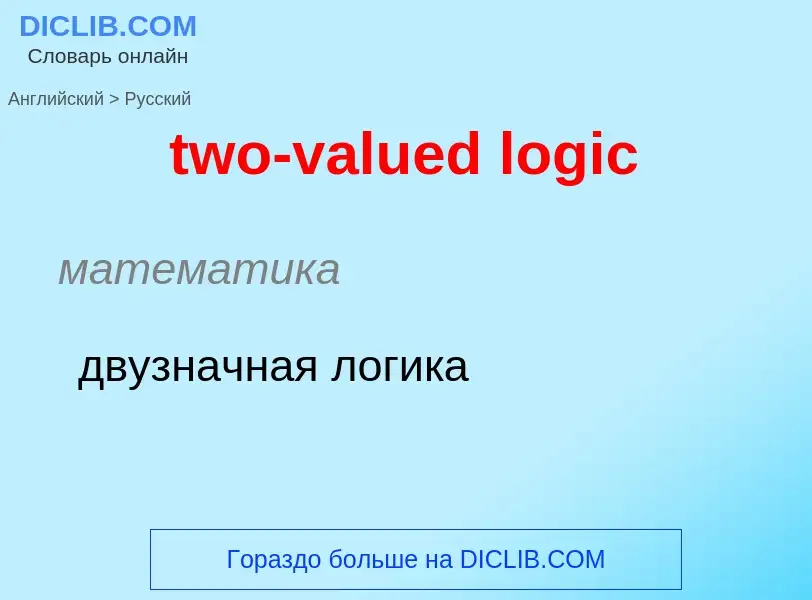Μετάφραση και ανάλυση λέξεων από τεχνητή νοημοσύνη
Σε αυτήν τη σελίδα μπορείτε να λάβετε μια λεπτομερή ανάλυση μιας λέξης ή μιας φράσης, η οποία δημιουργήθηκε χρησιμοποιώντας το ChatGPT, την καλύτερη τεχνολογία τεχνητής νοημοσύνης μέχρι σήμερα:
- πώς χρησιμοποιείται η λέξη
- συχνότητα χρήσης
- χρησιμοποιείται πιο συχνά στον προφορικό ή γραπτό λόγο
- επιλογές μετάφρασης λέξεων
- παραδείγματα χρήσης (πολλές φράσεις με μετάφραση)
- ετυμολογία
two-valued logic - translation to ρωσικά
математика
двузначная логика
математика
многозначная логика
математика
многозначная логика
Ορισμός
Βικιπαίδεια
In logic, the semantic principle (or law) of bivalence states that every declarative sentence expressing a proposition (of a theory under inspection) has exactly one truth value, either true or false. A logic satisfying this principle is called a two-valued logic or bivalent logic.
In formal logic, the principle of bivalence becomes a property that a semantics may or may not possess. It is not the same as the law of excluded middle, however, and a semantics may satisfy that law without being bivalent.
The principle of bivalence is studied in philosophical logic to address the question of which natural-language statements have a well-defined truth value. Sentences that predict events in the future, and sentences that seem open to interpretation, are particularly difficult for philosophers who hold that the principle of bivalence applies to all declarative natural-language statements. Many-valued logics formalize ideas that a realistic characterization of the notion of consequence requires the admissibility of premises that, owing to vagueness, temporal or quantum indeterminacy, or reference-failure, cannot be considered classically bivalent. Reference failures can also be addressed by free logics.

